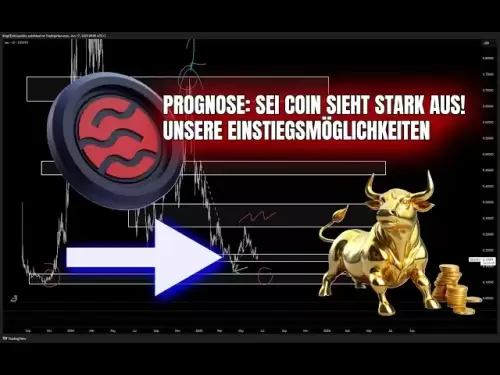-
 Bitcoin
Bitcoin $117,784.8122
6.03% -
 Ethereum
Ethereum $2,985.4492
7.49% -
 Tether USDt
Tether USDt $1.0002
-0.01% -
 XRP
XRP $2.6273
7.19% -
 BNB
BNB $688.8144
2.80% -
 Solana
Solana $164.1797
4.18% -
 USDC
USDC $0.9999
-0.01% -
 Dogecoin
Dogecoin $0.1989
10.08% -
 TRON
TRON $0.2961
2.12% -
 Cardano
Cardano $0.7259
15.27% -
 Hyperliquid
Hyperliquid $45.6326
10.22% -
 Sui
Sui $3.5222
9.17% -
 Chainlink
Chainlink $15.4621
7.77% -
 Bitcoin Cash
Bitcoin Cash $523.2404
1.57% -
 Stellar
Stellar $0.3163
8.13% -
 Avalanche
Avalanche $21.0098
7.48% -
 Hedera
Hedera $0.2044
14.78% -
 UNUS SED LEO
UNUS SED LEO $8.9812
0.11% -
 Shiba Inu
Shiba Inu $0.0...01346
7.75% -
 Toncoin
Toncoin $2.9763
3.02% -
 Litecoin
Litecoin $95.6221
5.22% -
 Polkadot
Polkadot $3.9508
7.50% -
 Monero
Monero $326.6734
1.59% -
 Uniswap
Uniswap $8.9185
8.19% -
 Dai
Dai $0.9999
-0.02% -
 Pepe
Pepe $0.0...01271
14.28% -
 Ethena USDe
Ethena USDe $1.0006
-0.03% -
 Bitget Token
Bitget Token $4.5228
2.14% -
 Aave
Aave $314.1302
6.41% -
 Pi
Pi $0.4909
0.64%
How to optimize a smart contract to reduce gas costs?
Optimize Ethereum smart contract gas costs by using efficient data structures, minimizing storage writes, and leveraging compiler optimizations.
Jul 12, 2025 at 12:14 am
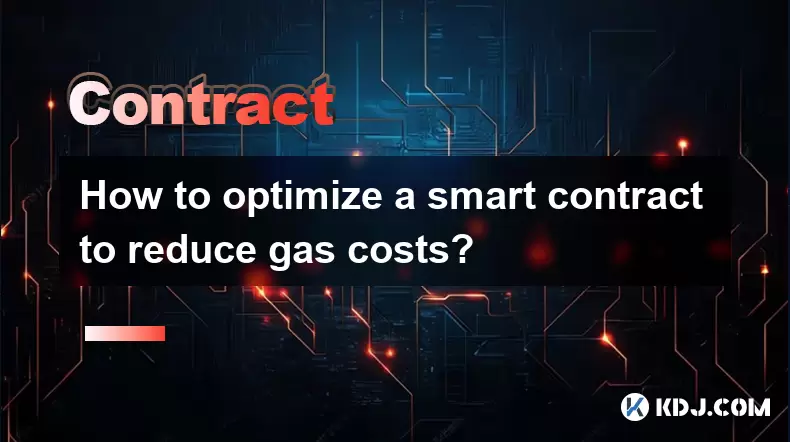
Understanding Gas Costs in Ethereum Smart Contracts
In the Ethereum blockchain, gas costs represent the fees users pay to execute transactions or smart contracts. Every operation performed on the Ethereum Virtual Machine (EVM) consumes a certain amount of gas, which is paid in ETH. Developers aiming to deploy and maintain smart contracts must understand how these costs are calculated to optimize their code effectively.
Gas fees depend on two main factors: gas limit and gas price. The gas limit refers to the maximum amount of gas a user is willing to spend on a transaction, while the gas price is the cost per unit of gas, usually measured in gwei. High computational operations, such as loops or complex logic, significantly increase gas consumption, making optimization crucial for reducing overall costs.
Choosing Efficient Data Structures and Storage Patterns
One of the most impactful ways to reduce gas costs in a smart contract is by optimizing data structures and storage usage. Each time a contract writes to storage, it incurs a high gas fee. Therefore, minimizing state changes and efficiently packing variables can lead to significant savings.
- Pack multiple variables into a single storage slot: Solidity allows tight variable packing, where variables that sum up to 256 bits can be stored together in one slot.
- Use mappings instead of arrays when possible: Iterating over arrays is expensive; mappings offer O(1) access and avoid looping.
- Avoid unnecessary writes to storage: Use memory variables during computation and only write to storage once at the end.
For instance, combining three uint8 values into a single uint24 saves storage slots and reduces gas used during updates.
Minimizing On-Chain Computation
On-chain computations, especially those involving loops, arithmetic, or string manipulations, can be extremely costly. To minimize this, developers should offload as much computation as possible to off-chain environments, using oracles or client-side processing.
- Precompute values off-chain: Instead of performing calculations inside the contract, pass already computed results via function arguments.
- Limit loop iterations: If loops are unavoidable, ensure they run a fixed and minimal number of times.
- Use constant-time algorithms: Avoid algorithms with complexity higher than O(1), especially in frequently called functions.
By shifting intensive tasks away from the EVM, developers can drastically cut down on execution costs.
Optimizing Function Calls and Event Logging
Function calls and event emissions also contribute to gas consumption. External calls, particularly to other contracts, can be unpredictable in terms of gas use due to potential reentrancy issues and external logic dependencies.
- Batch transactions: Combine multiple operations into a single transaction to save on overhead.
- Use internal functions where applicable: Internal calls are cheaper than external ones since they don’t go through the full external interface.
- Log essential data only: Emitting events is relatively cheap compared to storage writes but still adds up if done excessively.
Careful management of function calls and logging ensures that only necessary actions occur on-chain.
Leveraging Compiler Optimizations and Code Refactoring
Solidity offers several compiler optimizations that automatically reduce gas costs by improving the efficiency of generated bytecode. Enabling the optimizer with a high number of runs ensures that frequently used functions benefit from optimized code generation.
- Enable the Solidity optimizer: Set the
optimizerflag in your compiler settings and specify the number of expected runs for each function. - Refactor repetitive code: Replace repeated logic with reusable functions to reduce contract size and improve maintainability.
- Remove unused code: Unused functions and libraries bloat the contract and increase deployment costs.
Using tools like Slither or Solhint helps identify inefficient code patterns and suggests improvements for better gas performance.
Upgrading Contracts Using Proxy Patterns
Deploying a new contract every time a change is needed can be costly. Proxy contracts allow developers to upgrade contract logic without redeploying the entire contract, preserving state and saving gas.
- Implement UUPS or Transparent proxies: These proxy patterns enable upgrades while maintaining backward compatibility.
- Separate logic and storage: By decoupling logic from data, you avoid redundant deployments and reduce overall gas usage.
This strategy not only lowers gas costs but also improves the long-term maintainability of decentralized applications.
Frequently Asked Questions
Q: Can I reduce gas costs by changing the Solidity version?
Yes, newer versions of Solidity often include optimizations that lower gas usage. Always check release notes for gas-saving features before choosing a version.
Q: How does contract size affect gas costs?
Larger contracts require more gas to deploy. Minifying code, removing comments, and eliminating unused imports can reduce deployment costs.
Q: What is the difference between gas used and gas limit?
Gas used refers to the actual amount of gas consumed during execution, while gas limit is the maximum amount a user is willing to spend on a transaction.
Q: Are there tools to estimate gas costs before deploying a contract?
Yes, tools like Remix IDE, Hardhat, and Truffle provide gas estimation features that help developers analyze and optimize contract efficiency.
Disclaimer:info@kdj.com
The information provided is not trading advice. kdj.com does not assume any responsibility for any investments made based on the information provided in this article. Cryptocurrencies are highly volatile and it is highly recommended that you invest with caution after thorough research!
If you believe that the content used on this website infringes your copyright, please contact us immediately (info@kdj.com) and we will delete it promptly.
- MSGA Token: Revolutionizing Wealth Management with AI and Global Assets
- 2025-07-12 06:30:11
- Arctic Pablo, Trump Coin, Crypto Coins: What's the Hype?
- 2025-07-12 06:50:12
- Omni Network (OMNI): Soaring Gains or Risky Business?
- 2025-07-12 06:30:11
- Bitcoin Blasts Past $118K: ETF Inflows and a Weak Dollar Fuel the Fire!
- 2025-07-12 06:50:12
- BONK, RTX, XLM: The Trio of Crypto Opportunities You Can't Ignore
- 2025-07-12 05:10:12
- Bitcoin, Tokenization, and CZ Debunking: What's the Buzz?
- 2025-07-12 04:50:12
Related knowledge
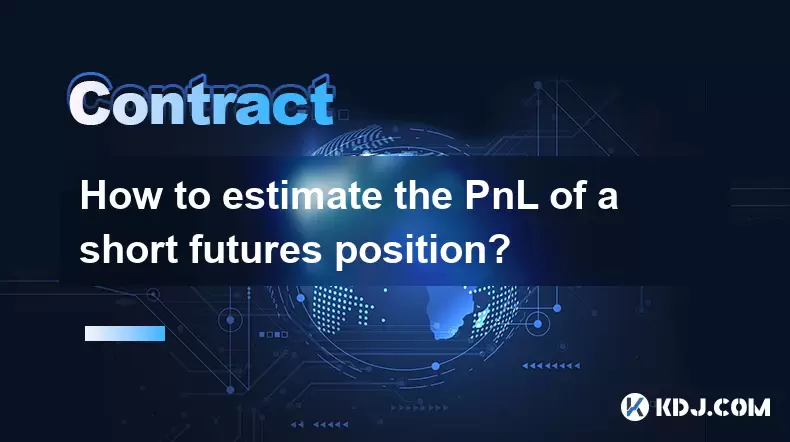
How to estimate the PnL of a short futures position?
Jul 10,2025 at 05:00pm
Understanding the Basics of Futures Trading and PnLIn futures trading, a trader enters into a contract to buy or sell an asset at a predetermined pric...
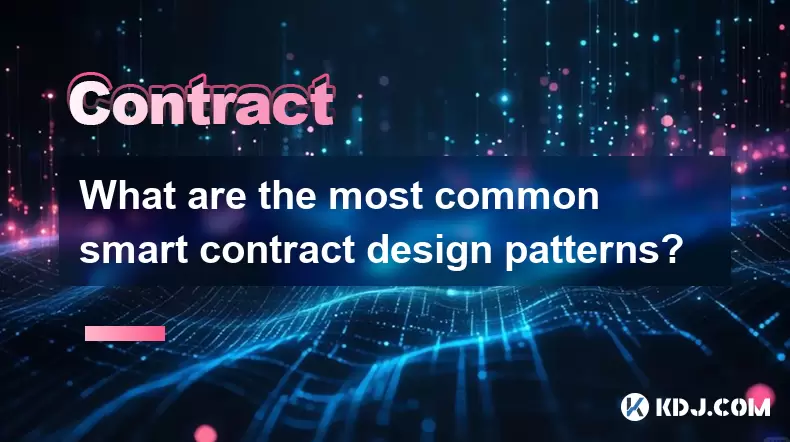
What are the most common smart contract design patterns?
Jul 10,2025 at 09:29pm
Introduction to Smart Contract Design PatternsSmart contract design patterns are standardized solutions to recurring problems encountered during the d...
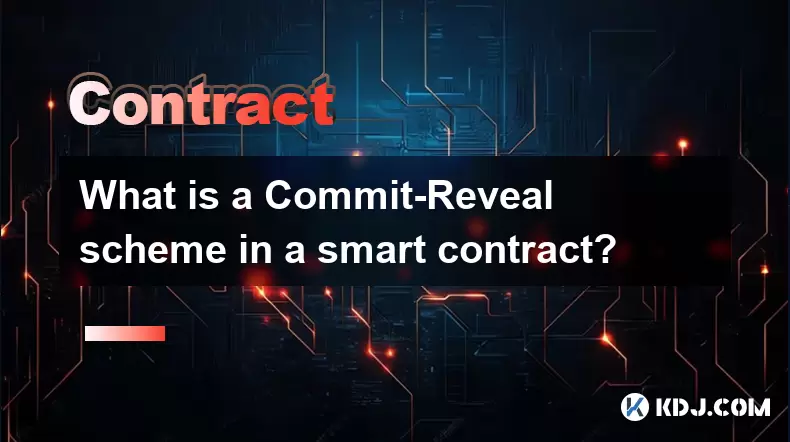
What is a Commit-Reveal scheme in a smart contract?
Jul 10,2025 at 05:22pm
Understanding the Concept of a Commit-Reveal SchemeIn the realm of blockchain and smart contracts, privacy and fairness are often critical concerns, e...
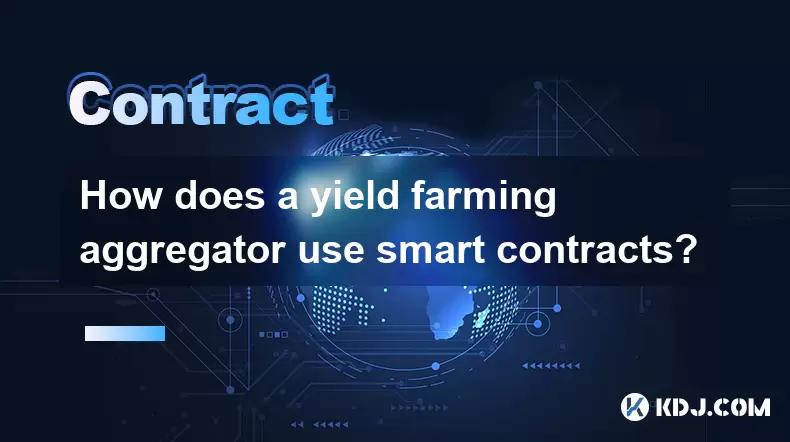
How does a yield farming aggregator use smart contracts?
Jul 11,2025 at 02:49am
Understanding the Role of Smart Contracts in Yield Farming AggregatorsA yield farming aggregator leverages smart contracts to automate and optimize th...
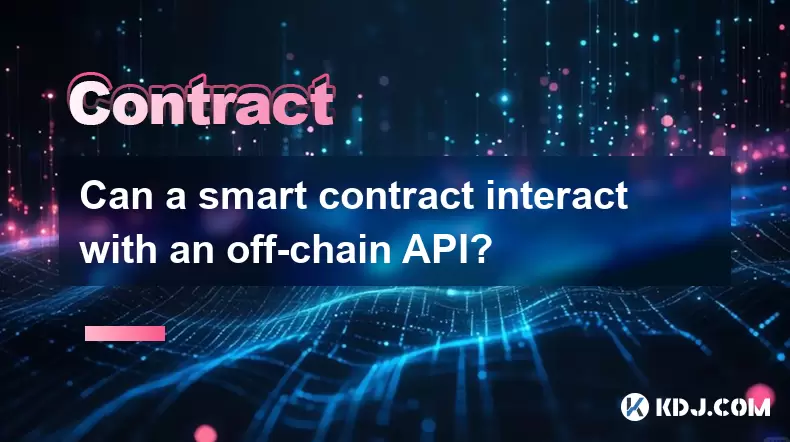
Can a smart contract interact with an off-chain API?
Jul 10,2025 at 09:42pm
What is a Smart Contract?A smart contract is a self-executing contract with the terms of the agreement directly written into lines of code. These cont...
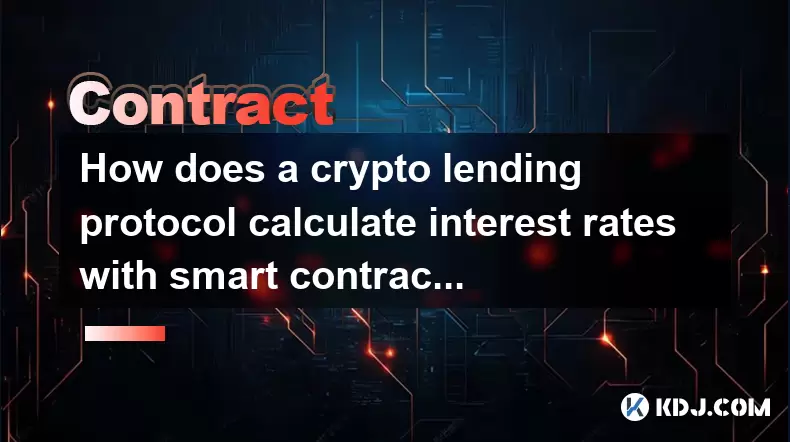
How does a crypto lending protocol calculate interest rates with smart contracts?
Jul 11,2025 at 07:21am
Understanding the Basics of Crypto Lending ProtocolsCrypto lending protocols operate on blockchain networks using smart contracts to automate the proc...

How to estimate the PnL of a short futures position?
Jul 10,2025 at 05:00pm
Understanding the Basics of Futures Trading and PnLIn futures trading, a trader enters into a contract to buy or sell an asset at a predetermined pric...

What are the most common smart contract design patterns?
Jul 10,2025 at 09:29pm
Introduction to Smart Contract Design PatternsSmart contract design patterns are standardized solutions to recurring problems encountered during the d...

What is a Commit-Reveal scheme in a smart contract?
Jul 10,2025 at 05:22pm
Understanding the Concept of a Commit-Reveal SchemeIn the realm of blockchain and smart contracts, privacy and fairness are often critical concerns, e...

How does a yield farming aggregator use smart contracts?
Jul 11,2025 at 02:49am
Understanding the Role of Smart Contracts in Yield Farming AggregatorsA yield farming aggregator leverages smart contracts to automate and optimize th...

Can a smart contract interact with an off-chain API?
Jul 10,2025 at 09:42pm
What is a Smart Contract?A smart contract is a self-executing contract with the terms of the agreement directly written into lines of code. These cont...

How does a crypto lending protocol calculate interest rates with smart contracts?
Jul 11,2025 at 07:21am
Understanding the Basics of Crypto Lending ProtocolsCrypto lending protocols operate on blockchain networks using smart contracts to automate the proc...
See all articles


























